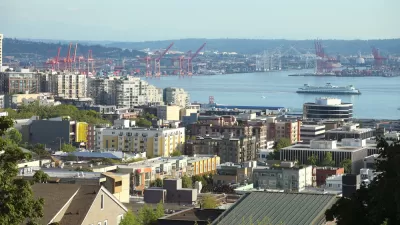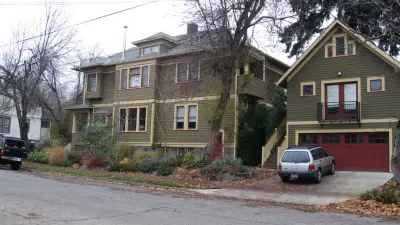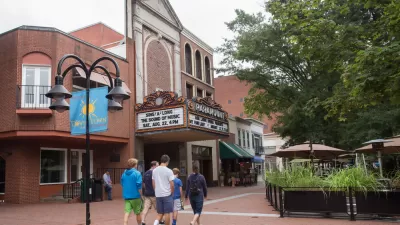Reform of the Washington State Environmental Policy Act (SEPA) is underway at the local level after a new state bill offered "safe harbor" under the law for a menu of land use and development reforms.

Natalie Bicknell reports on the local response in Seattle to the passage of House Bill 1923, state level legislation passed earlier this year that "provides cities with a menu of options for increasing their housing density and then provides 'safe harbor,' or protections from SEPA lawsuits, for actions taken from that menu."
In response to the breathing room provided by the new state law, Seattle councilmembers Mike O'Brien and Abel Pacheco have introduced Council Bill 119600, "which would align Seattle’s environmental review process with recent changes state level changes made to SEPA," according to Bicknell.
Bicknell lists some of the important changes proposed by Council Bill 119600:
- Align City code with new state law House Bill 1923 that exempts some City Land Use Code changes from SEPA appeals;
- Limit Hearing Examiner SEPA appeal hearings to 120 days, with an option to extend to 150 days if all parties agree;
- Clarify that additional and voluntary subjects covered in an Environmental Impact Statement are not subject to appeal;
- Update SEPA thresholds for Urban Villages to exempt projects with less than 200 units and 12,000 square feet; and
- Allow the Seattle Department of Construction and Inspections to create a SEPA Handbook that provides guidelines for consistent analysis.
Bicknell speculates that the bill is likely to pass by October, which is when "things will really become interesting."
An article by Dan Bertolet, published in November 2017, details the obstructionist effect of SEPA.
FULL STORY: Seattle Advances SEPA Reform with Equity and Affordability in Mind

Alabama: Trump Terminates Settlements for Black Communities Harmed By Raw Sewage
Trump deemed the landmark civil rights agreement “illegal DEI and environmental justice policy.”

Study: Maui’s Plan to Convert Vacation Rentals to Long-Term Housing Could Cause Nearly $1 Billion Economic Loss
The plan would reduce visitor accommodation by 25% resulting in 1,900 jobs lost.

Planetizen Federal Action Tracker
A weekly monitor of how Trump’s orders and actions are impacting planners and planning in America.

Waymo Gets Permission to Map SF’s Market Street
If allowed to operate on the traffic-restricted street, Waymo’s autonomous taxis would have a leg up over ride-hailing competitors — and counter the city’s efforts to grow bike and pedestrian on the thoroughfare.

Parklet Symposium Highlights the Success of Shared Spaces
Parklets got a boost during the Covid-19 pandemic, when the concept was translated to outdoor dining programs that offered restaurants a lifeline during the shutdown.

Federal Homelessness Agency Places Entire Staff on Leave
The U.S. Interagency Council on Homelessness is the only federal agency dedicated to preventing and ending homelessness.
Urban Design for Planners 1: Software Tools
This six-course series explores essential urban design concepts using open source software and equips planners with the tools they need to participate fully in the urban design process.
Planning for Universal Design
Learn the tools for implementing Universal Design in planning regulations.
Caltrans
Smith Gee Studio
Institute for Housing and Urban Development Studies (IHS)
City of Grandview
Harvard GSD Executive Education
Toledo-Lucas County Plan Commissions
Salt Lake City
NYU Wagner Graduate School of Public Service





























